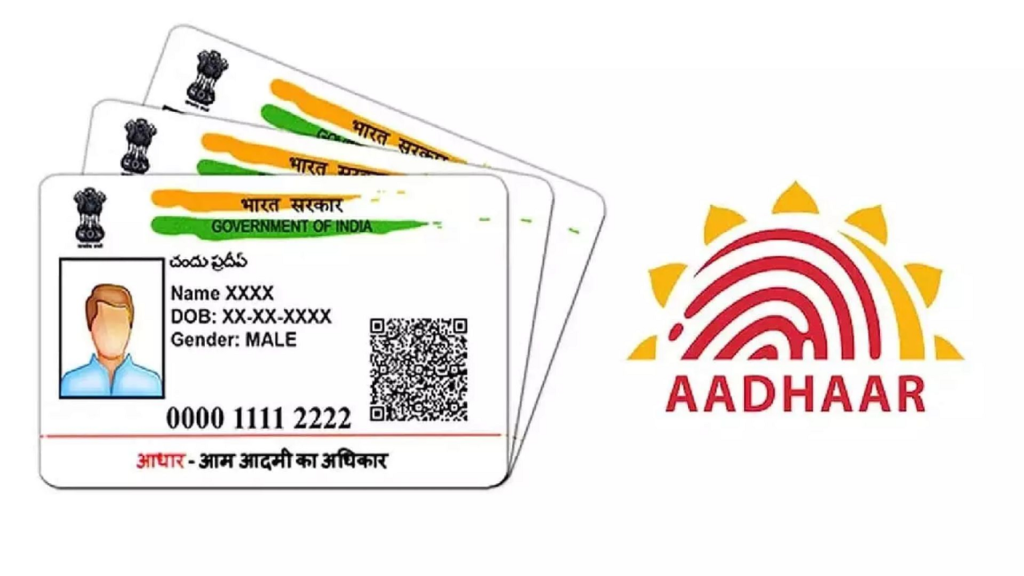In this blog post, we will explore how to get a loan from your Aadhar card. We will discuss the process of applying for a loan, as well as the interest rates and repayment terms. We will also provide some tips on how to make the most of this opportunity and improve your chances of getting approved.

What is an Aadhar Card
An Aadhar card is a unique identification card issued by the Indian government to every citizen of India. It contains a 12-digit unique number which serves as a proof of identity and address. The card is linked to the holder’s biometric data, such as their fingerprint and iris scan, which can be used to authenticate their identity.
The Aadhar card was introduced in 2009 with the aim of providing a universal ID for all citizens, which would help in improving the delivery of government services and benefits. It has since become the world’s largest biometric ID system, with over 1.2 billion cards issued as of February 2017.
The UIDAI, the agency responsible for issuing Aadhar cards, has been working on expanding the use of the card beyond just government services. One recent initiative is to allow people to use their Aadhar card as a form of KYC (Know Your Customer) when opening a bank account or applying for a mobile phone connection. This will go a long way in helping people who do not have any other form of formal ID to access financial services.
How to Get a Loan from Aadhar Card
If you are looking to get a loan from your Aadhar card, there are a few things that you will need to do. First, you will need to find a lender that is willing to give you a loan using your Aadhar card as collateral. There are a few lenders out there that are willing to work with people with bad credit, but you will likely have to pay a higher interest rate.
Once you have found a lender, you will need to fill out an application. Be sure to include all of the necessary information so that the lender can make an informed decision about your loan. After the application has been processed, the lender will likely request additional documentation from you, such as proof of income and employment history.
If everything goes well and the lender approves your loan, you will be given a disbursement date. Once the money is deposited into your account, you will be able to use it for whatever purpose you choose. Just be sure to make your payments on time and in full in order to avoid any penalties or fees.
Interest Rates on Loan from Aadhar Card
If you are looking to take out a loan using your Aadhar card, there are a few things you need to know about interest rates. The first thing to understand is that the interest rate on a loan from your Aadhar card will be based on your credit score. This means that if you have a good credit score, you will likely qualify for a lower interest rate. However, if your credit score is not as good, you may still be able to get a loan from your Aadhar card, but the interest rate will be higher.
It’s also important to understand that the interest rate on a loan from your Aadhar card may vary depending on the lender you choose. Some lenders may offer lower interest rates than others, so it’s important to shop around and compare offers before choosing a lender.
Finally, it’s important to remember that the interest rate on a loan from your Aadhar card is just one factor to consider when taking out a loan. You’ll also need to consider the size of the loan, the repayment terms, and any fees or charges associated with the loan. By considering all of these factors, you can make sure you’re getting the best deal possible on your loan from your Aadhar card.
Repayment of Loan from Aadhar Card
If you have applied for and received a loan from Aadhar Card, you will be required to repay the loan in full within the agreed upon repayment period. Failure to repay the loan in full may result in late fees, penalties, and damage to your credit score.
To ensure that you are able to repay your loan on time, you should always make sure to keep track of your repayment schedule and make payments on time. If you are ever unsure about whether or not you can make a payment, it is always best to contact your lender directly to discuss your options.
If you find yourself struggling to repay your loan for any reason, it is important to reach out to your lender as soon as possible to avoid any further damage to your credit score or financial situation. Many lenders offer hardship programs that can help borrowers who are struggling to make their payments. These programs can offer lower interest rates or extended repayment periods, which can make it easier for you to get back on track with repaying your loan.
Also Read: Best Personal Loan In India

